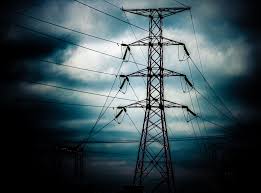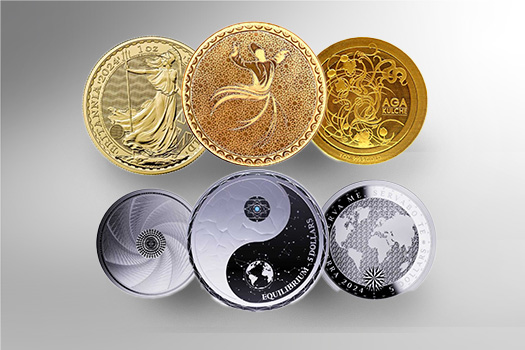
Optimistic Investors and Pessimistic Central Bankers

Gold Price Trends
As gold prices continued to hover above $1,900/oz this month, the yellow metal defied the expectations of investors who favored further bearish sentiment. Despite assurances from both the Fed and the ECB that interest rates will continue to be raised and kept above 4-5% until inflation subsides, investors are still not convinced.
There is a generally positive mood in the markets, and more optimistic investors expect interest rates to start reducing months before the FED‘s announced schedule. This situation provides serious support to gold, as some investors expect that the zero positive return environment will continue for the coming months.
Currently, investors are expecting a 0.25% interest rate increase from the FED on February 1; However, some investors expect a 0.5% interest rate increase. However, even a 50 basis point interest rate increase to 5% will not exceed the US core CPI, which is 5.7%, and core inflation in the US is estimated to remain at a similar level next month. It looks like the yellow metal will continue to shine.
US Economy and the Debt Ceiling Dilemma
The United States is once again facing a Debt Ceiling crisis as the American government is predicted to reach the maximum amount allowed by Congress to borrow. Normally, the House of Representatives would raise the historically symbolic ceiling to prevent default. But with Republicans taking control in the House, the Biden administration will have to accept their demands for heavy spending cuts to avoid plunging the country into economic turmoil due to a technical default.
The debt ceiling is currently at $31.4 billion and could be sustained through June with special measures estimated to cost the United States more than a billion dollars, according to Janet Yellen. The worst-case scenario is that if the two politically divided parties fail to reach an agreement by this deadline, the United States would face the risk of a default, even an artificial one, for the first time in history.
Kaynak: BBC

China‘s Population and Covid Crises
This month, China‘s National Bureau of Statistics reported that China‘s population decreased by 850,000 for the first time since 1961. The abolition of the one-child policy in 2015 did not improve the situation, and Covid has certainly had a negative impact on it. According to projections, the population of China is expected to continue to decline and decrease by 100 million by 2050.
This is a serious indicator that China‘s labor force is entering a period of even sharper decline. The effects of this decline will be felt seriously in the coming years and will threaten the country‘s current status as the world‘s factory with its cheap, young and inexhaustible workforce. The rapid decline is predicted to reduce China‘s working-age population from nearly 1 billion to just 700 million by the middle of this century.
As Chinese Lunar New Year approaches, Covid cases in the country are expected to rise rapidly, with an estimated 2 billion trips taking place across the country for the first time since the Covid outbreak began in Wuhan. The country‘s fragile health system has come under further pressure, with rural areas in particular coming under threat. If the health situation spirals out of control, we are likely to see a meaningful impact on the Chinese economy.
Source: The Conversation
G7 Price Limit for Russian Oil
When the G7 and the EU imposed a $60 price ceiling on Russian oil in December last year, most economists and analysts were skeptical of its effectiveness. However, after two months, Russian oil is currently trading even below the determined ceiling price. The reason why this is effective contrary to expectations is that shipping insurance, which is a necessity for all ships, is provided almost entirely by US and European companies all over the world, which have to comply with the new rules.
One reason why prices have fallen below the ceiling price is that the paperwork and documentation required to import Russian oil has increased significantly and thus become more difficult. This situation even caused tanker queues in the straits. It is worth emphasizing that the EU has banned all imports of Russian crude oil, and the combination of both the G7 price cap and the embargo has caused Russian oil to suffer severely.
One reason why prices have fallen below the ceiling price is that the paperwork and documentation required to import Russian oil has increased significantly and thus become more difficult. This situation even caused tanker queues in the straits. It is worth emphasizing that the EU has banned all imports of Russian crude oil, and the combination of both the G7 price cap and the embargo has caused Russian oil to suffer severely.
In addition, the discount on Russian Ural and North Sea Brent oil, the latter being the international unit of measurement of oil, has increased significantly since the start of the war in Ukraine and is now at the level of 35-40 dollars. Last year, these reductions deprived the Kremlin of an estimated $50 billion, equivalent to 12% of its planned revenue, according to the Kiev School of Economics.
This further weakened Russia‘s hand and the financing of its armed forces. Finally, it is also worth noting that the average cost of extracting a barrel of Urals oil is around $40, and any price below this means that Russia will record a net loss when selling its oil abroad. While hydrocarbon prices are predicted to decrease further by some investors, approximately 1/3 of the world economy is expected to enter recession this year. Russia‘s economic situation is problematic, to say the least.
Source: The Financial Times

Additional News in Brief:
South Africa continues to struggle to maintain a stable electricity supply as the country‘s monopoly state-owned power company, Eskom, cannot meet demand. A highly disruptive process called load shedding is being implemented where electricity is cut off for up to 10 hours in different areas every day. This practice affects everything from shops to large gold mines, and gold extraction costs are rising partly because of this practice.
Ukraine this month mourned the loss of its Minister of Internal Affairs and 13 other ministry employees. Unfortunately, the helicopter carrying the group crashed into a kindergarten due to adverse weather conditions, causing other deaths.











